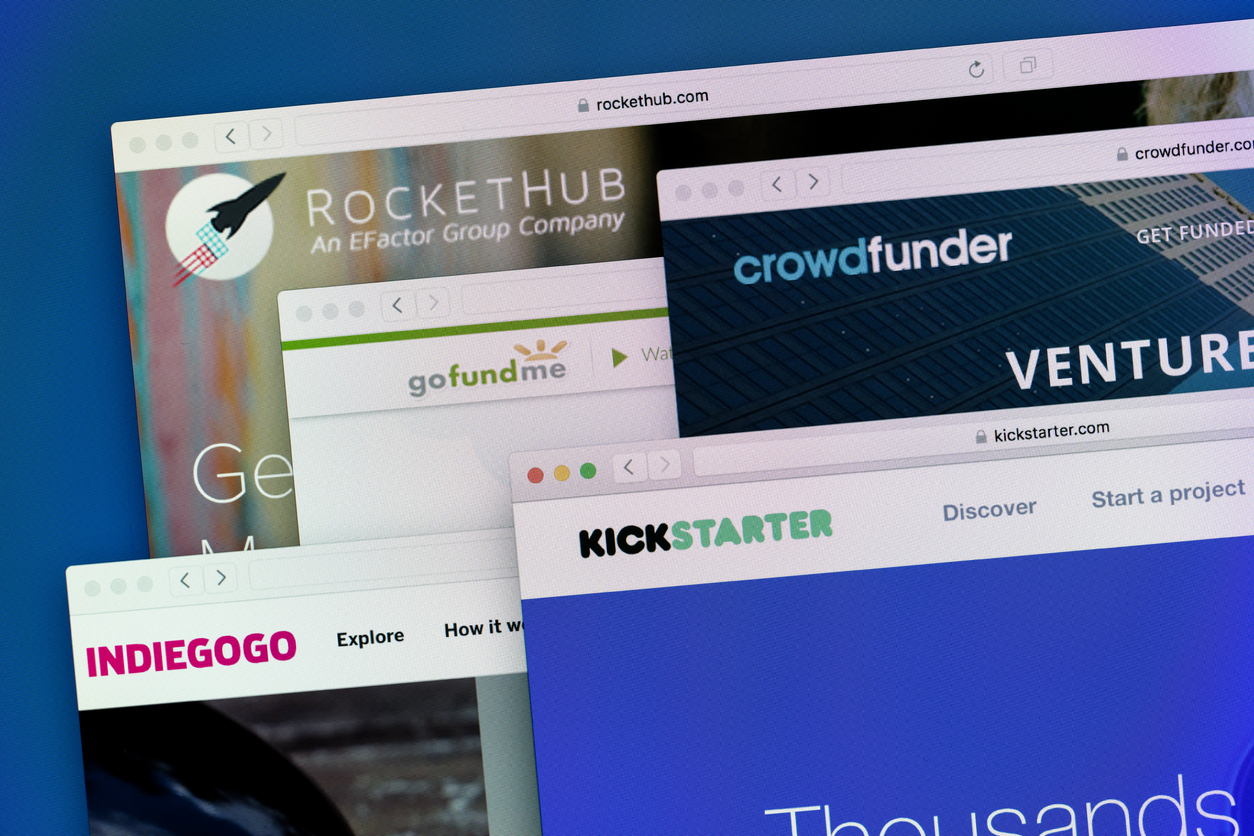The Daily Scoop: Crowdfunding is the new focus group
Plus: COVID cases are on the rise, and young investors will accept smaller returns for values alignment.

If you thought Kickstarter and Indiegogo campaigns were just for board games and oddly ambitious coolers, think again. The Wall Street Journal reports that major companies like GE Appliances and Canon are using crowdfunding to gauge interest in proposed products and gather consumer feedback, which can be used to adjust packaging, marketing and more before the item becomes widely available. Conversely, if not enough people are interested in the product, it may not see the light of day at all.
Consumers are putting their money where their mouth is, too: they often pay close to full price for early access to these goods.
“This is the new focus group,” Indiegogo CEO Becky Center told the Journal. “Instead of paying people to come, people are paying you, and they’re kind of voting with their wallets.”
While the benefits are obvious for companies — gauge market interest and charge people money to give you market insights before a broad launch — some are critical of corporations using tools designed to help small creators and inventors.
Why it matters
This is undoubtedly a clever idea already being used today to put products into the market, like a machine that produces chewable nugget ice, a face-tracking camera and a Transformers toy that measures in at more than 2 feet in height.
For communicators, this data can be solid gold. Understanding what most interests audiences — and what doesn’t — is valuable for more than just production purposes. It can help foster a deeper understanding of what IP or concepts resonate with audiences for messaging across the board.
But making broad decisions based on the opinions of your most ardent fans can carry risks too. It can be difficult to take feedback from the most passionate users and scale it back to audience members who are more neutral or even skeptical.
Additionally, there is risk of backlash as large companies wade into spaces designed for small businesses to gain a foothold.
If you decide to test this concept, use it with the same caution you would any focus group data. At the end of the day, you are the expert in how to deliver messages to audiences. Take in large amounts of data, sort through it critically and return the very best ideas — combined with your expertise.
Editors Top Reads
- It’s time to brush off those COVID response plans and ensure you’re prepared for a winter that could see increases in cases. Even in the height of summer, some locales — primarily in the Northeast and West — are seeing spikes, the New York Times reported. There’s no need to panic: Most cases are mild, akin to a cold or flu, and far less severe than in the early days of the pandemic. Still, these increases could lead to disruption as workers need to quarantine. School closures or sick kids could lead to a need for flexibility and understanding for parents. And in some places, it may make sense to mask again. Be ready and have these conversations now before winter sets in and the season begins in earnest.
- Younger consumers want the companies they invest in to match their values — even if that costs them money in the long-run. CNBC reported on a U.S. Bank survey that found that more than 80% of both Gen Z and Millennial investors are willing to accept returns lower than S&P averages if they align with their values. This can mean a variety of topics, including who companies donate funds to, stances on climate change and more. It’s a reminder that despite controversy from some politicians, ESG is important for most consumers under the age of 40 — and is only going to increase in importance in coming years.
- ChatGPT is supposed to refuse to craft campaign messages that target specific demographics, but the Washington Post found that this policy is not enforced. The powerful generative AI tool will happily spit out customized messages in a matter of seconds for Donald Trump or Joe Biden, appealing to precise groups of people. This raises concerns that, “campaigns could generate thousands of campaign emails, text messages and social media ads, or even build a chatbot that could hold one-to-one conversations with potential voters,” the Post reported. It all points to what’s going to be a messy campaign season filled with disinformation. Be ready for a rocky year — and remember to use generative AI only for good.
Allison Carter is executive editor of PR Daily. Follow her on Twitter or LinkedIn.







